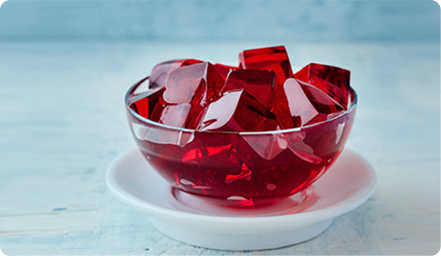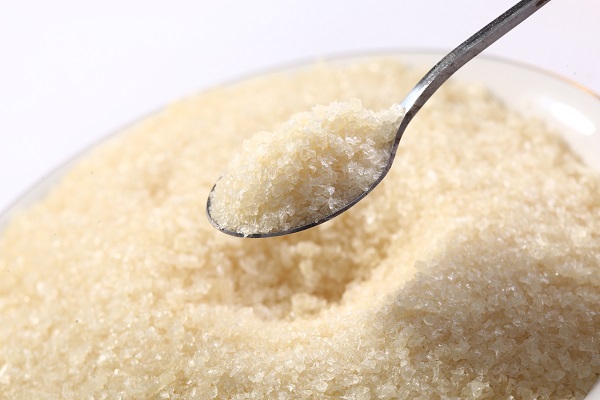-
July, 26,2025
Understanding the Role of Bloom Strength in Soft Gelatin Capsules
-
July, 25,2025
Bloom Strength and Its Impact on Hard Gelatin Capsules
-
July, 21,2025
How Gelatin Is Revolutionizing Pet Food: A Healthier Option for Dogs
-
June, 22,2025
Collagen as a Trusted Ingredient: Meeting Global Demand with Reliable Supply
What Candies Have Gelatin?
Gelatin is the key component used in most candies, yet it is not exclusive to the well-known gummy bears. To your astonishment, you may be surprised to find that various other varieties of candies employ gelatin as well. Within this post, we'll explore what varieties of candies contain gelatin, why it's used, and whether it's safe. Let's dive into the sweet world of gelatin-packed candies!
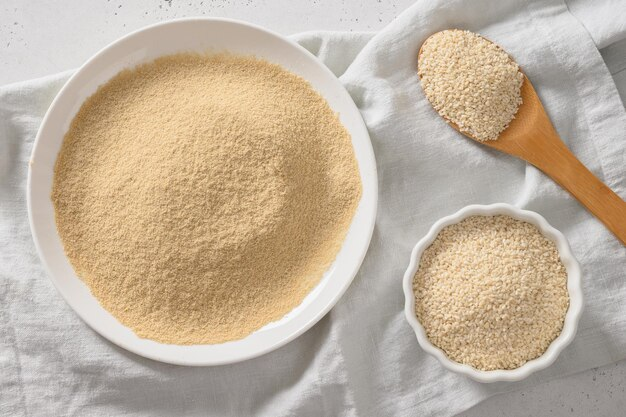
What Candies Have Gelatin?
Gelatin is a versatile ingredient used to provide chewy, gummy, or marshmallow textures in candies. While the most common candy form with gelatin is the gummy candy, it is also found in numerous other popular candies. Let's take a look at some candies with gelatin.
Gummy Candies
The most obvious type of candy to use gelatin is the gummy candies. Whether gummy bears, gummy worms, or gummy rings, the gelatin serves to produce the chewy texture that makes these candies so widely enjoyed. The gelatin gives the candies the ability to hold their shape and their characteristic softness.
Marshmallows
You might not think of marshmallows as candies that have gelatin in them, but yes, they do! It's the gelatin that allows for those light, airy marshmallows, which hold the mixture of sugar and air together that makes marshmallows soft and chewy. And so, the next time you put marshmallows in your hot chocolate or eat them as a snack, what you're essentially doing is enjoying the gelatinous goodness.
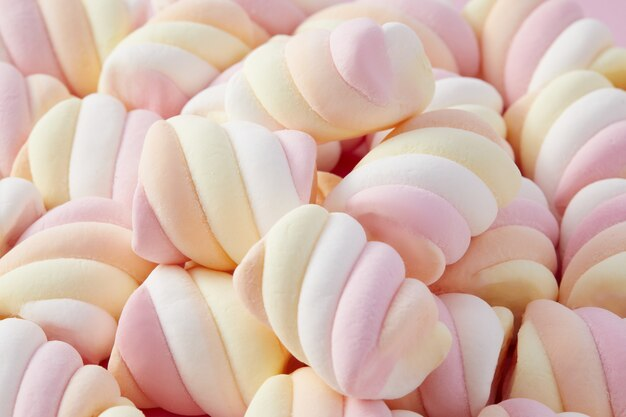
Jelly Beans
Jelly beans are another type of candy that makes use of the gelatin. The gelatin is responsible for the chewy, sugar-coated consistency of the beans. While jelly beans come in numerous flavors and forms, gelatin is a key ingredient used to achieve the correct consistency and texture that is so popular with so many.
Fruit Snacks
Most fruit snacks, especially those marketed for children, also contain gelatin. The snacks are normally marketed as a healthy food choice above candy, but they can contain added sugars and gelatin to provide a pleasant texture. So, when you're reaching for fruit snacks, remember that they may contain gelatin, which is why they have that chewy, gummy texture.
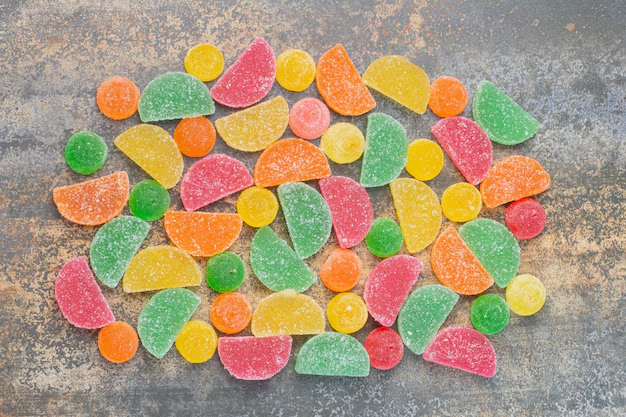
Puddings and Gelatin-based Candies
Some candies that are pudding-shaped, such as pudding pops, use gelatin to create a smooth, firm texture that will not become liquid when frozen. Some hard candies that are gelatin-based also use gelatin to create a slightly chewy texture, which makes them different from other hard candies.
Licorice
There are some candies containing licorice that add gelatin too. While not many varieties of licorice have gelatin in them, some use gelatin as a vital ingredient in order to create the chewiness of the product. Remember, not all of these have gelatin, so reading labels is essential.
Candy Brands Using Gelatin
A few candy brands use gelatin in their products for the mere sake of texture. Some renowned candy brands, including gelatin have their products include:
- ·Haribo: Known for its gummy bears, Haribo is a leading manufacturer of gelatin-based gummy candies.
- ·Trolli: Famous for gummy worms and other gelatin-based gummies, Trolli also uses a lot of gelatin to create the characteristic chewy texture of their products.
- ·Jelly Belly: Their jelly beans use gelatin, providing them with a chewy texture and structure.
- ·Albanese: Albanese offers a vast assortment of gummy candies, such as gelatin candies, for a chewy and soft texture.
All these companies and many more use gelatin to give their candies this distinctive chew and texture.
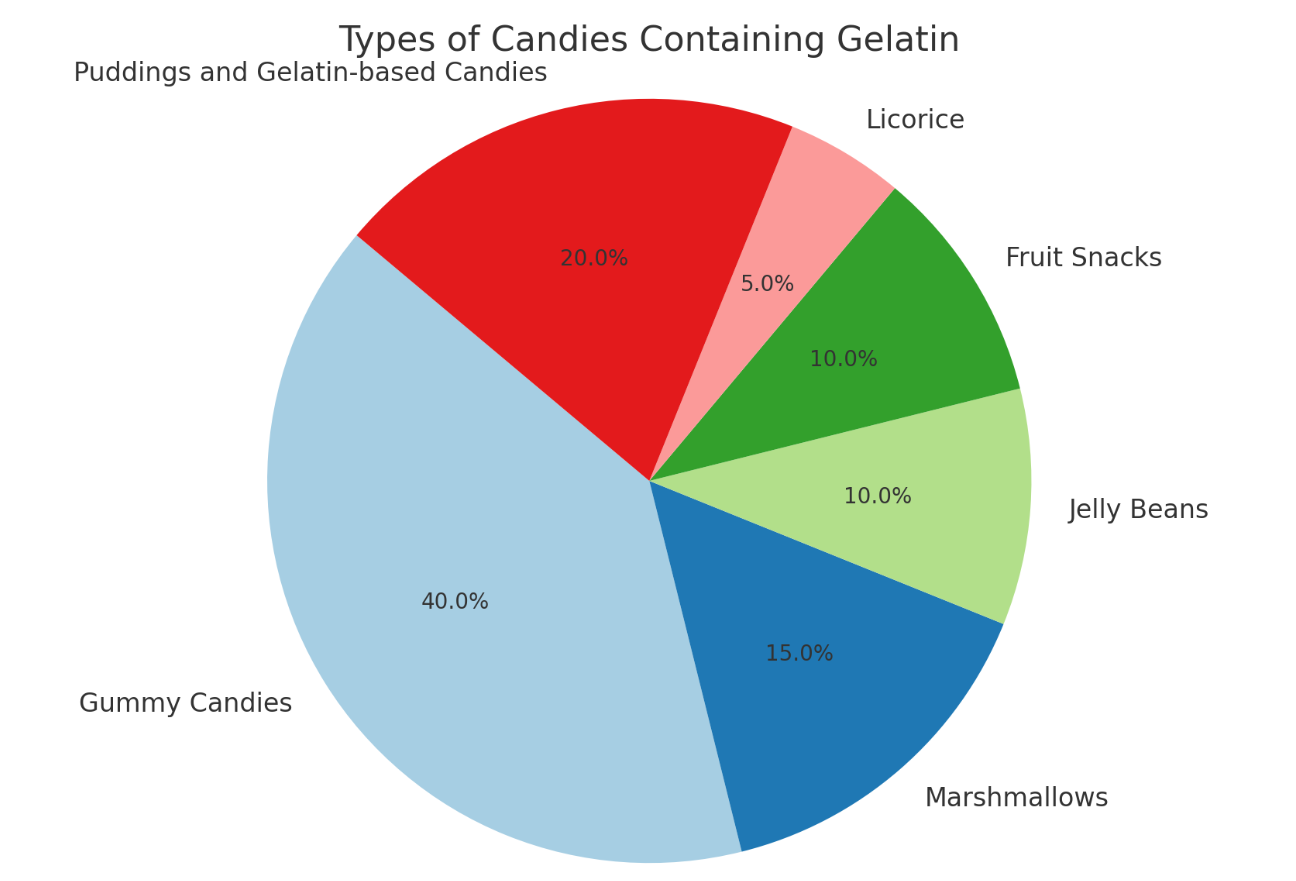
When considering what candies have gelatin, it’s important to use high-quality gelatin to achieve the perfect texture and consistency. As a trusted gelatin manufacturer, FNP Gelatin offers premium natural confectionery gelatin that’s ideal for a variety of candy types, from gummies to marshmallows.
Why Those Candies Have Gelatin?
Gelatin is an important ingredient in candy manufacturing. Let us analyze the reasons why candies generally have this component.
Texture and Consistency
The primary reason candies containing gelatin are so popular is the texture. Gelatin provides a chewy, firm, or smooth texture to candies. For gummy candies, it's the chewy texture that cannot be avoided. For marshmallows and puddings, gelatin stabilizes the mixture, making them light and fluffy or firm in texture.
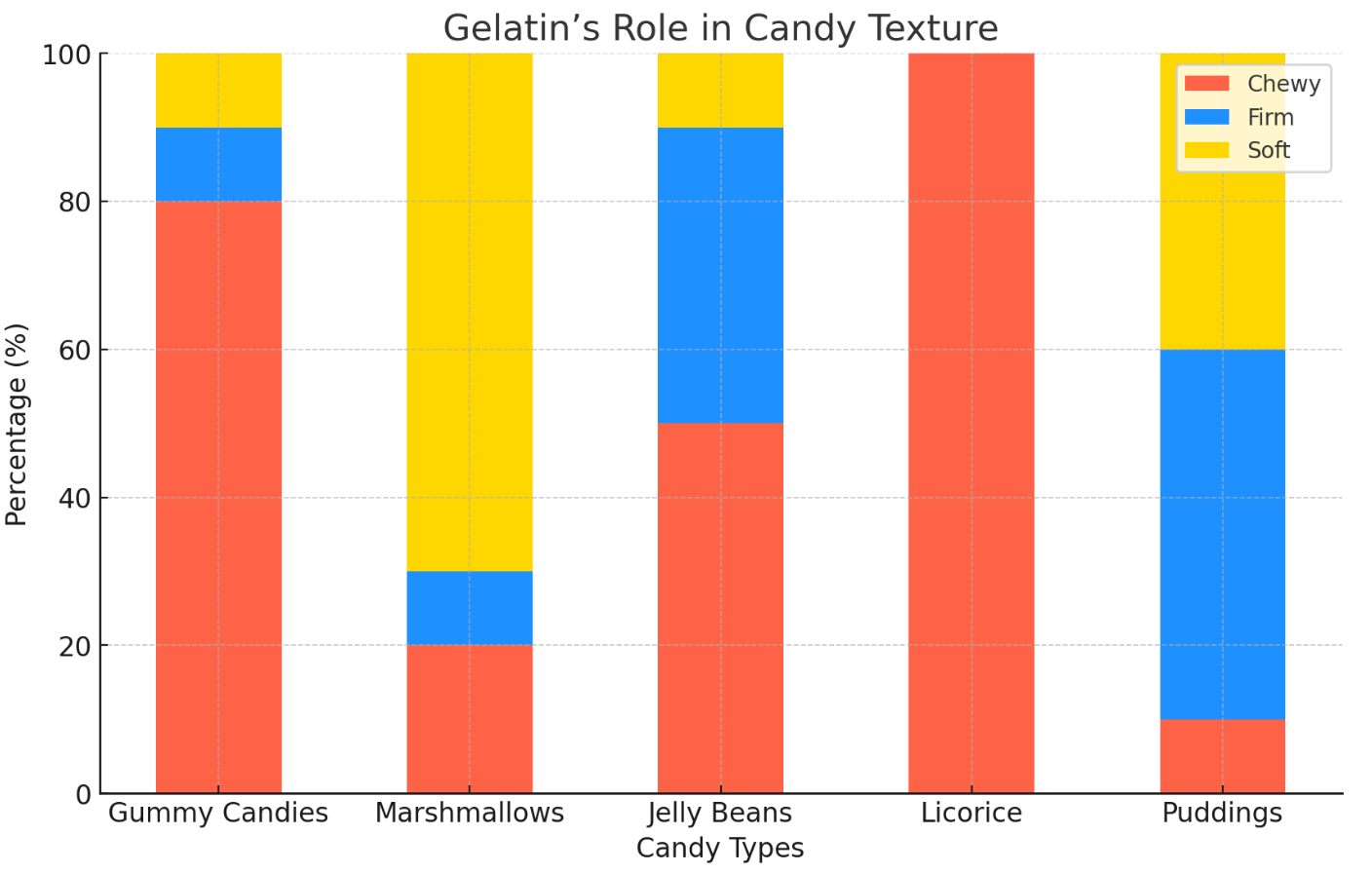
Cost-Effective and Easy to Use
Gelatin is also inexpensive and easy to work with in candy manufacturing. It's flexible, soluble in water, and works well with a wide variety of other ingredients. This makes it a favorite among candy manufacturers who desire to produce large quantities of chewy, shelf-stable candies without breaking the bank.
Shelf Stability
Gelatin is also the reason why the shelf life of most candies. Gelatin sets candy to a firmer texture, so it will not get too sticky or mushy. This is particularly the case with candies like gummy bears or marshmallows, which need to be able to retain their shape for at least some amount of time and be easily manipulated.
Vegan Alternatives
To those who follow a vegan diet, gelatin can be difficult because it tends to be made from animal collagen, typically beef or pork. As a result, different candy manufacturers have been seeking alternatives, like agar-agar or pectin, to cater to vegan customers. Despite this, traditional gelatin remains popular among most candy manufacturers due to its appealing texture and cost-effectiveness.
Gelatin serves as the key ingredient for giving candy that chewy, firm texture. When sourcing gelatin, it’s important to choose a trusted edible gelatin manufacturer. FNP Gelatin provides high-quality, consistent gelatin, making it a top choice for manufacturers. Their gelatin powder wholesale options ensure that you can meet production needs at scale without compromising on quality.
Is Gelatin in Candy Safe?
Now you might be wondering, "Is candy gelatin safe to eat?" Let's examine the safety of candy gelatin and why it's a safe food for most people.
Gelatin and Food Safety
Gelatin comes from animal collagen, and it undergoes extensive processing before it is added to foods. Gelatin production involves boiling animal skin, bones, and connective tissue to extract the collagen, purify it, dry it, and process it into the powder or sheets sold for use in candy. As long as the gelatin is obtained from a reputable supplier and complies with food safety laws, it is completely safe for consumption.
Potential Concerns: Pork Gelatin
One of the questions most often asked about gelatin is if it is produced using pork gelatin. One of the most used animal-based gelatins is pork, meaning that whether or not candies use pork gelatin is of interest to certain groups of people who may have a dietary restriction based on pork consumption due to religion or personal reasons. When looking for options free from pork, look on the package or seek beef- or plant-derived alternatives.
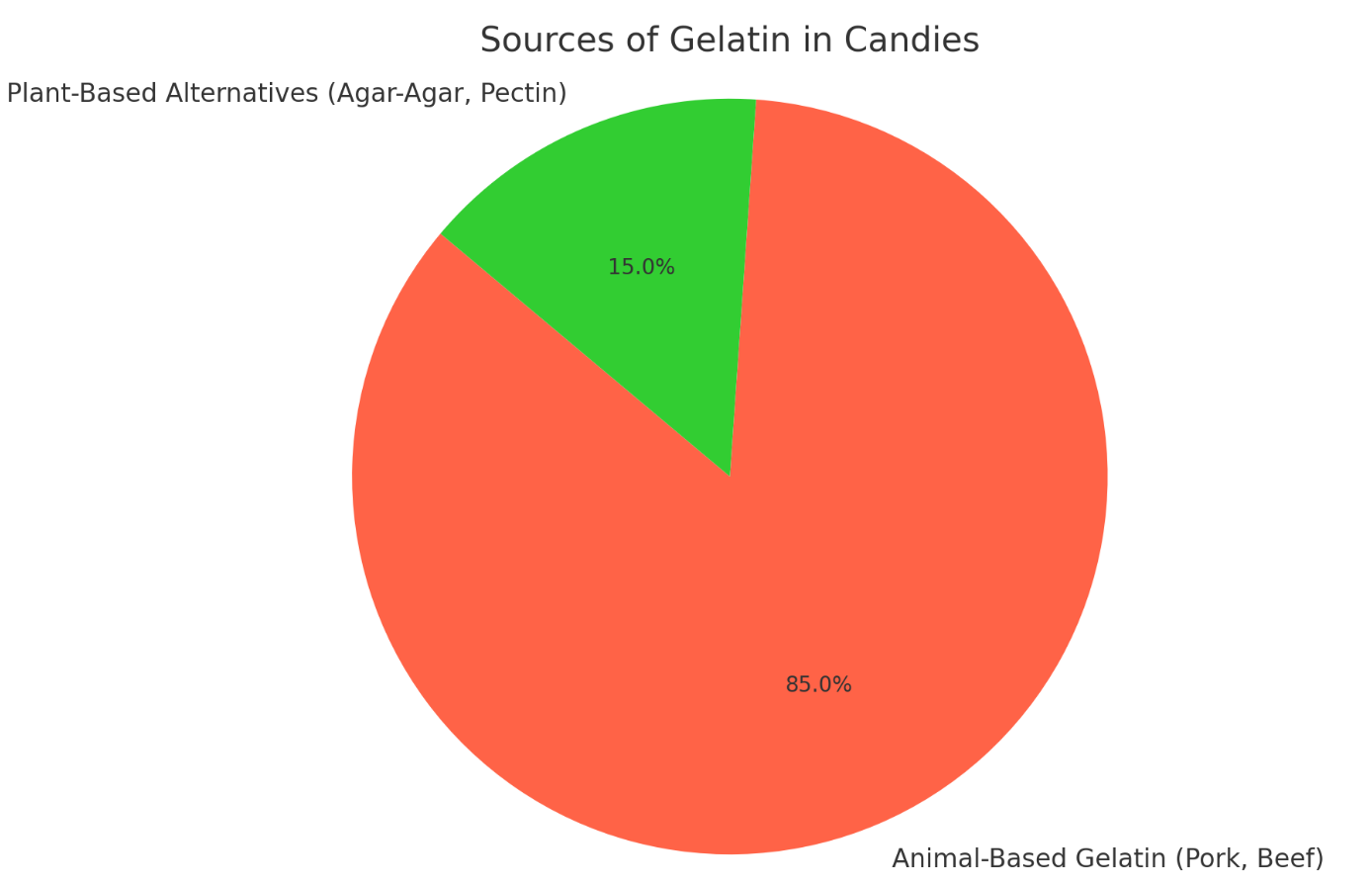
Vegetarian and Vegan Alternatives
For those who are cutting out animal products, some candies are gelatin-free and use vegan alternatives such as agar-agar or pectin. These vegetarian alternatives can provide the same textures without using animal products. Most companies now offer gelatin-free versions of the traditional gelatin candies, which are more inclusive for those with dietary restrictions.
Gelatin Allergy
While not usual, some people can be allergic to gelatin. If you're sensitive or allergic to gelatin, it's best to avoid candies that contain gelatin. Fortunately, there are many alternatives, and candy manufacturers typically label their products as such.
For businesses looking for safe and reliable gelatin sources, FNP Gelatin stands out as a leading gelatin manufacturer that follows rigorous safety standards. Their natural confectionery gelatin is produced to meet the highest quality and safety benchmarks.
Final Thoughts
Gelatin plays a significant role in the world of candy, especially when producing chewy, marshmallow-type, or gummy candies. Though everyone may consume these candies without paying attention to the ingredients, it is best to know what candies have gelatin and why they include it. From gummy bears to marshmallows, gelatin gives these treats that traditional texture and shelf life. However, if you’re concerned about the source of gelatin, like pork gelatin, there are alternatives available, including vegan-friendly options.
When you purchase candies, make sure you always read the ingredient list so you can choose something that will fit your dietary needs and specifications. If you enjoy the chewy texture of a gummy candy or the tender bite of a marshmallow, gelatin is an ingredient that continues to play a central role in the world of confections.
Now that you know what candies have gelatin and how it plays a vital role in candy production, choosing the right source is key. For the highest quality gelatin powder wholesale, natural confectionery gelatin, and reliable supply options, FNP Gelatin is the preferred choice of many industry professionals. As an established edible gelatin manufacturer, they ensure consistency and top-tier products for all your candy-making needs.
FAQs
1. What candies have gelatin?
Some popular candies, including gummy bears, marshmallows, jelly beans, and fruit snacks, are made of gelatin. Gelatin is used to provide a chewy texture and improve the stability of the candy.
2. What candies don't have gelatin?
Some candies, especially those that are described as vegan, do not contain gelatin. Agar-agar or pectin are used in vegan-friendly gummy candies instead.
3. What candies have pork gelatin?
Some marshmallows and gummy candies, especially those made by large companies like Haribo, contain pork gelatin. Check the ingredients if you cannot consume pork-based gelatin.
4. Is gelatin in candy safe?
Yes, gelatin is safe to eat. It is a product of animal collagen and can be found in many food products. However, if you have an allergy to gelatin or do not consume pork, alternatives are available.
5. Can I make my gelatin-free candy?
Yes! There are numerous recipes for homemade gelatin-free candy with plant-based alternatives like agar-agar or pectin for a similar texture.
Phone: +86-577-88105990
Mobile: +86-138 5886 1938
Official Website: www.fnp-gelatin.com
Email: sales@funingpu.com
Address: No. 1-10 Wenpu Road, Yacheng Town, Xiapu County, Ningde City, Fujian Province

